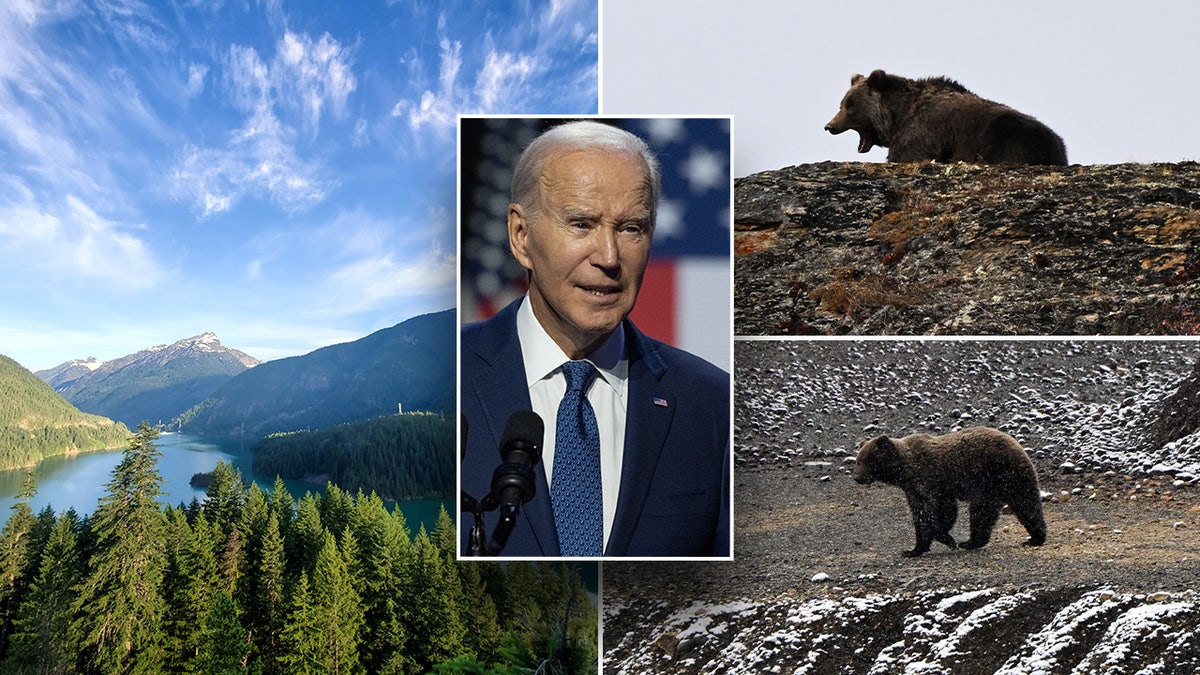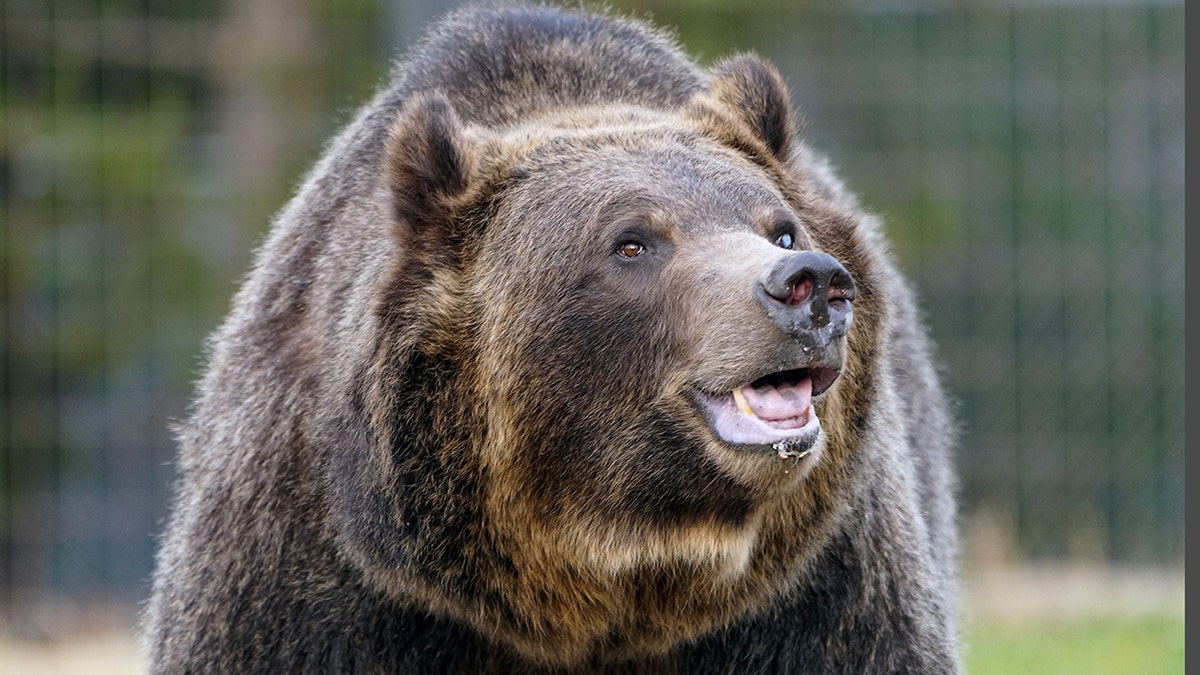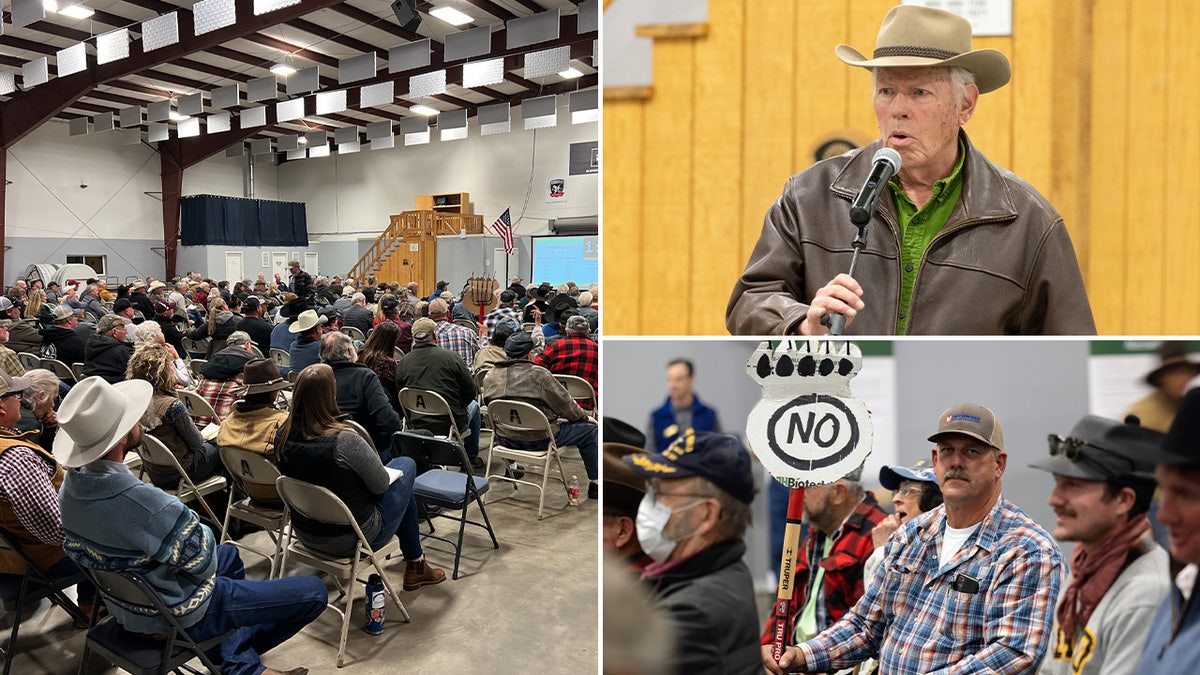‘The Five’ on how eco-straws are apparently not good for the environment
‘The Five’ co-hosts discuss how paper straws are reportedly worse for the environment than the plastic versions.
A wide range of livestock and agriculture industry groups, in addition to state and local governments, are opposing a Biden administration plan to release grizzly bears in a Washington forest area located near rural communities.
The groups, which include the National Cattlemen’s Beef Association (NCBA), Public Lands Council (PLC) and American Farm Bureau Federation (AFBF), argued in comments filed with the federal government this week that releasing grizzly bears near communities would be detrimental to their members in the region. They also said such a move would threaten public safety and jeopardize future conservation efforts.
"Introducing an apex predator like the grizzly bear to a new area of Washington state is a mistake and poses a huge threat to our rural communities and hardworking farmers and ranchers," said Mark Eisele, a Wyoming rancher and incoming NCBA president.
"This plan is being pushed by bureaucrats thousands of miles away from the West who do not fully understand the harm this species will cause to producers. The Biden administration should listen to rural residents and rethink this plan."

The Biden administration proposed a plan Sept. 29 to release up to seven grizzly bears annually into the North Cascades ecosystem in northern Washington over the course of the next five to 10 years. (Getty Images)
"Grizzly bears are 20 times more dangerous than black bears and are well known for their aggressive, fatal mauling," added PLC President Mark Roeber, a Colorado rancher. "Their broad diet means they can harm anyone — corn producers, orchards, cattle ranchers, sheep ranchers. The list goes on and on."
Roeber argued the decision to airdrop bears into a new environment shouldn't be taken lightly and said he has faced livestock depredation as a result of gray wolf populations near his ranch. Grizzly bears, he added, are an even larger predator that "will only cause more harm to our fellow livestock producers in Washington state."
WHITE HOUSE CONFIRMS BIDEN WILL SIGN BIPARTISAN BILL REVERSING HIS OWN ADMIN'S CRACKDOWN ON HUNTING
In late September, the National Park Service and Fish and Wildlife Service proposed a rule and draft environmental impact statement opening the door to releasing grizzly bears in the North Cascades National Park located in northern Washington along the U.S.-Canada border. The proposal was cheered by left-wing eco groups but heavily criticized by local lawmakers and residents.
Under the proposal, the federal government would release up to seven grizzly bears annually into the North Cascades ecosystem (NCE) over the course of the next five to 10 years. The federal government's overarching goal would be to establish a grizzly bear population of roughly 200 bears in the coming decades.

Grizzly bears, which are an apex predator species, are listed by the federal government as threatened but not endangered. (Trevor Hughes/USA Today Network)
"In addition to the threat to human safety, the reintroduction of grizzly bears to the NCE will pose a real risk to the economic viability of the ranch and farm families that undergird the rural economy across Washington state," the NCBA, PLC, AFBF, American Sheep Industry Association and several local affiliates wrote in comments filed Monday.
"There will be numerous significant economic harms to both private and public lands producers, as well as a severe rise in risks to human safety. These consequences are bad enough on their own, but they are even harder for producers to stomach when this reintroduction is not even required for the continued nationwide growth of the grizzly bear population."
The federal plan released in September includes three options, two that would involve actively restoring populations of the threatened grizzly bear species and one "no action" alternative that would maintain current management practices. The public comment period for the proposal expired Monday.
"We reiterate our opposition to grizzly bear reintroduction given the likely adverse impacts to our local communities and lack of local government engagement by the federal agencies," the Chelan County Board of Commissioners, the local governing body near the NCE, wrote in its own comment letter.
"At minimum, we hope that you will consider our comments and develop a draft EIS and proposed 10(j) rule that more accurately reflects the current science, management needs and local community impacts of grizzly bear reintroduction."
Both the Montana and Idaho state governments also weighed in on the proposal, arguing the federal government's proposal would be harmful.
"Grizzly bears will occupy a diversity of habitats, regardless of landownership or zonal designation. It is naive to think that there will only be bears on public lands, unless the intent is to manage bears to exclude any that wander onto private land," Montana Fish, Wildlife and Parks Director Dustin Temple wrote. "If that is the intent, then many more bears will be required to achieve a desired population."
BIDEN'S WAR ON HUNTING FACES BLOWBACK FROM REPUBLICANS, SPORTSMEN GROUPS
According to the NPS, grizzly bears occupied the North Cascades and served as an "essential part of the ecosystem" for thousands of years. However, in the 20th century, as a result of aggressive hunting practices, the species was driven into near extinction and the last confirmed sighting of a grizzly bear in the NCE was in 1996.
Hugh Morrison, the regional FWS director, said in September that grizzly bears are part of the region's heritage and restoring them could be done in a way that ensures communities, residents and animals "can all coexist peacefully."

An estimated 200 northern Washington residents recently participated in a public comment session hosted by federal officials to hear feedback about the proposal to release grizzly bears in a nearby forest area. (Courtesy of Rep. Dan Newhouse)
The plan would release grizzly bears near communities, and, according to the Washington State Department of Fish and Wildlife, unintentionally or intentionally killing a grizzly bear in the state can result in massive fines and penalties since the species is listed as federally threatened and state-listed as endangered.
Plans to reintroduce grizzly bears to the North Cascades dates to the Obama administration. Then, after significant state opposition led by Congressman Dan Newhouse, the Trump administration concluded grizzly bears would not be restored in the ecosystem.
Former Interior Secretary David Bernhardt noted in July 2020 that grizzly bears are not in danger of extinction and that his agency could manage populations across their existing range.
However, late last year, following extensive litigation from environmental groups, the Biden administration announced it would again review whether to move forward with restoration, a process that led to the proposal in September.















































